If you are just beginning your crypto journey, you will quickly come across the terms coins and tokens. At first, they may seem interchangeable, but in reality they represent different things. Understanding the difference is an important first step toward making sense of the cryptocurrency ecosystem and how value moves within it.
What is a Cryptocurrency Coin?
A cryptocurrency coin is any digital currency that runs on its own independent blockchain. Bitcoin (BTC) is the coin of the Bitcoin network, while Ethereum (ETH) is the coin of the Ethereum network. These coins are the foundation of their blockchains, giving them value and also securing the system through different mechanisms.
Because they are native to their blockchains, coins are often thought of as digital money. They can be used to buy goods and services, to send payments globally, or to hold value as an investment. Over the years, coins like Bitcoin have gained mainstream adoption, with companies such as PayPal, Microsoft and Starbucks already accepting it for payments.
Coins also support the health of their networks. On proof of work blockchains, like Bitcoin, miners use computing power to validate transactions. In return for this work, they receive newly minted coins as a reward.
On proof of stake blockchains, like Ethereum and Ripple, validators secure the network by staking coins. The more they stake, the greater their chance of being chosen to verify transactions, and the more rewards they earn. Both systems ensure trust without needing a central authority.

What is a Cryptocurrency Token?
Tokens, in contrast, do not have their own blockchain. Instead, they are built on top of an existing blockchain. Ethereum is the most well known example, as it supports thousands of tokens that follow standards such as ERC-20 for fungible tokens and ERC-721 for non fungible tokens. Tether (USDT), USD Coin (USDC) and Solana (SOL) are all examples of tokens that operate on Ethereum and other blockchains.
Tokens are extremely flexible. A token can represent a digital currency, a voting right in a project, a piece of real estate, or even an in game asset. Because they are easier to create than coins, they are often used by startups to raise funds or to power new blockchain based services.
Types of Tokens
Although all tokens share the fact that they are built on an existing blockchain, they can serve very different purposes. Utility tokens are the most common. These give holders access to products or services within a project, such as paying fees with Binance Coin on the Binance exchange.
Stablecoins are another major category. These tokens are pegged to real world assets, usually the US dollar, so that their value remains steady. USDT and USDC are both stablecoins and are used widely to avoid volatility in crypto trading.
Other important categories include governance tokens, which give holders voting rights to decide how a protocol develops, and security tokens, which represent shares in assets such as companies or real estate. Security tokens are often subject to regulation, making them closer to traditional investments but with the benefits of blockchain.

Coins vs Tokens in Perspective
At a glance, the difference is straightforward. Coins are the native currencies of their own blockchains, while tokens are created on top of existing blockchains. Coins act mostly like money, used to secure networks and as a means of exchange. Tokens, however, can represent almost anything, from stable value to community power to fractional ownership in real assets.
Both play vital roles in the growth of cryptocurrency. Coins provide the foundation, keeping blockchains alive and trusted. Tokens add flexibility and innovation, powering everything from decentralized finance to gaming.
Final Thoughts
The easiest way to tell them apart is simple. If a cryptocurrency has its own blockchain, it is a coin. If it runs on another blockchain, it is a token. Coins behave most like digital money. Tokens unlock broader possibilities and create new ways to interact with crypto projects.
As you continue exploring, you will likely use both. Coins and tokens are not competitors but complements, each vital to the way blockchain technology is growing.
Manage Coins and Tokens in One Place
Zypto App brings them together. Store, swap and use more than 24,000 assets, connect to high limit Visa and Mastercard crypto cards, pay bills with crypto, top up mobiles and buy gift cards instantly. Everything you need, all in one app.

FAQs
What is the difference between a crypto coin and a token?
A coin runs on its own blockchain, like Bitcoin, Ethereum or XRP. A token is created on top of an existing blockchain, like USDT or USDC.
Is Ethereum a coin or a token?
Ethereum’s native currency (ETH) is a coin because it has its own blockchain. However, the Ethereum network also supports thousands of tokens that follow standards such as ERC-20 and ERC-721.
Are stablecoins considered coins or tokens?
Stablecoins like USDT and USDC are tokens. They are issued on top of existing blockchains, most commonly Ethereum, and their value is pegged to fiat currencies like the US dollar.
Which is safer, coins or tokens?
Coins are often considered more secure because they are central to the blockchain’s operation. Tokens can be riskier since their value depends on the project built on the underlying blockchain.
Can I store both coins and tokens in the same wallet?
Yes. The Zypto App lets you manage coins and tokens in one place, supporting over 24,000 assets across multiple blockchains.






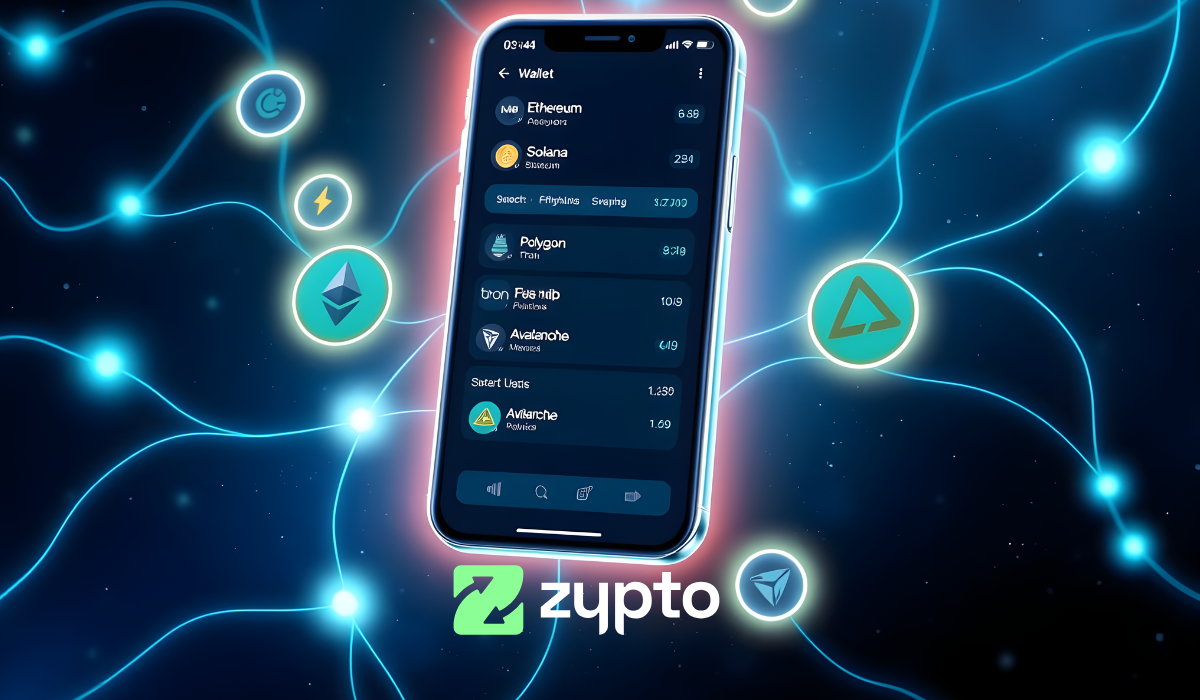

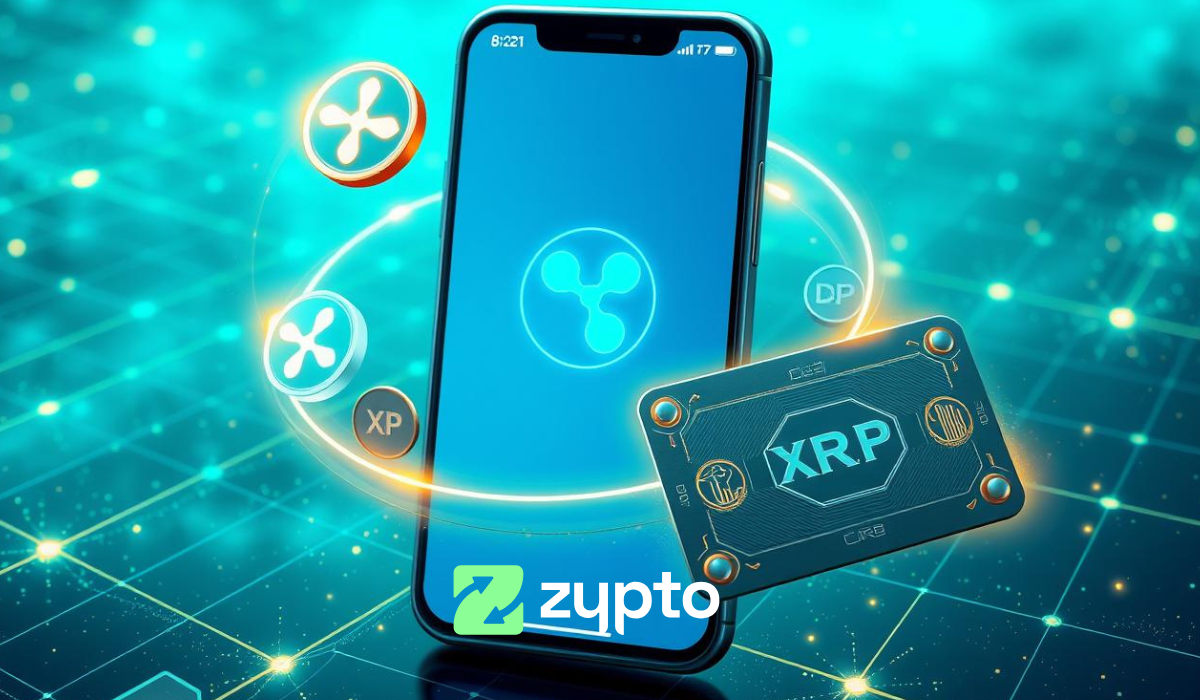








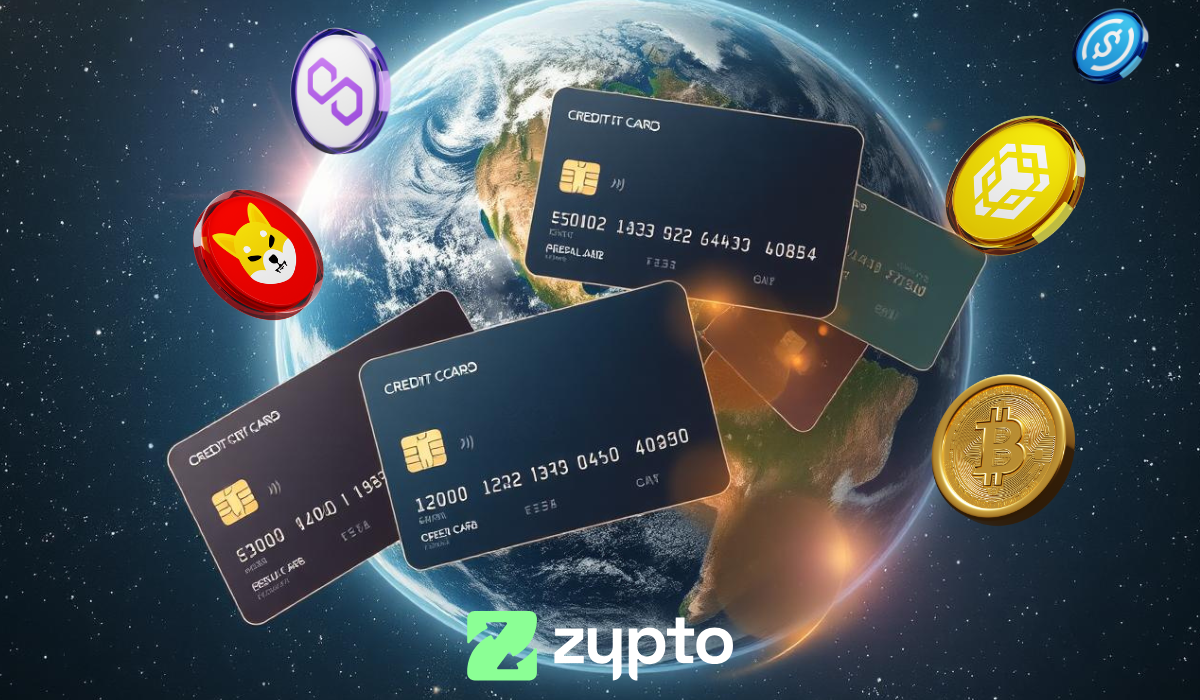


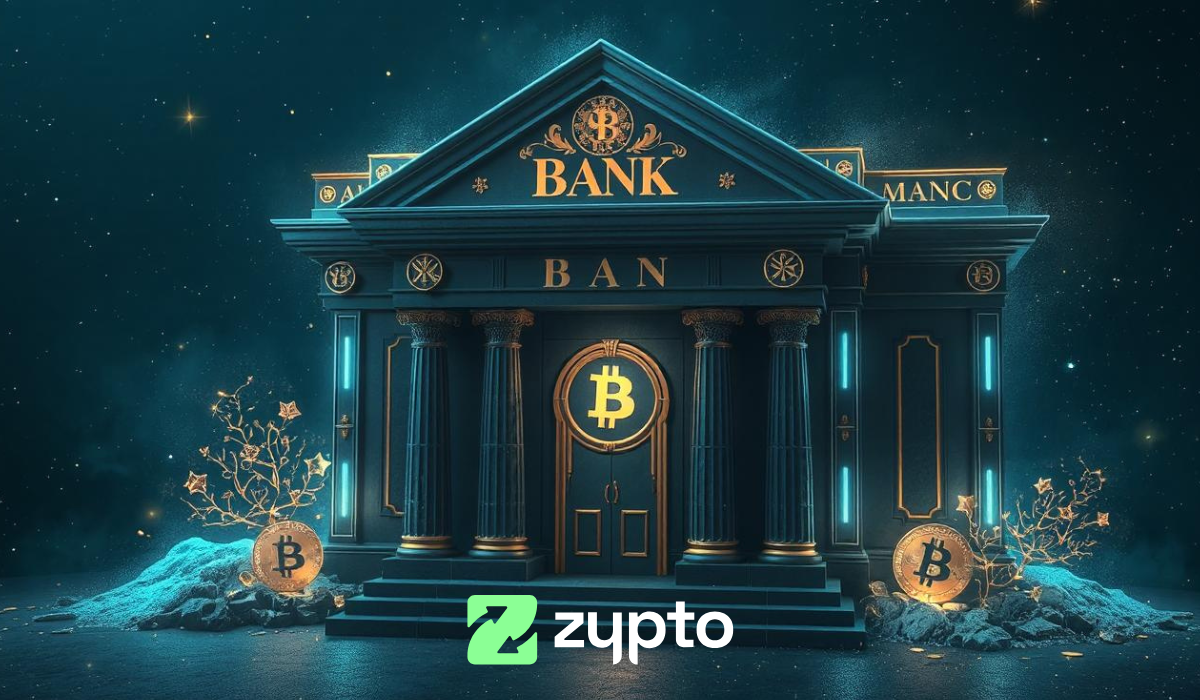

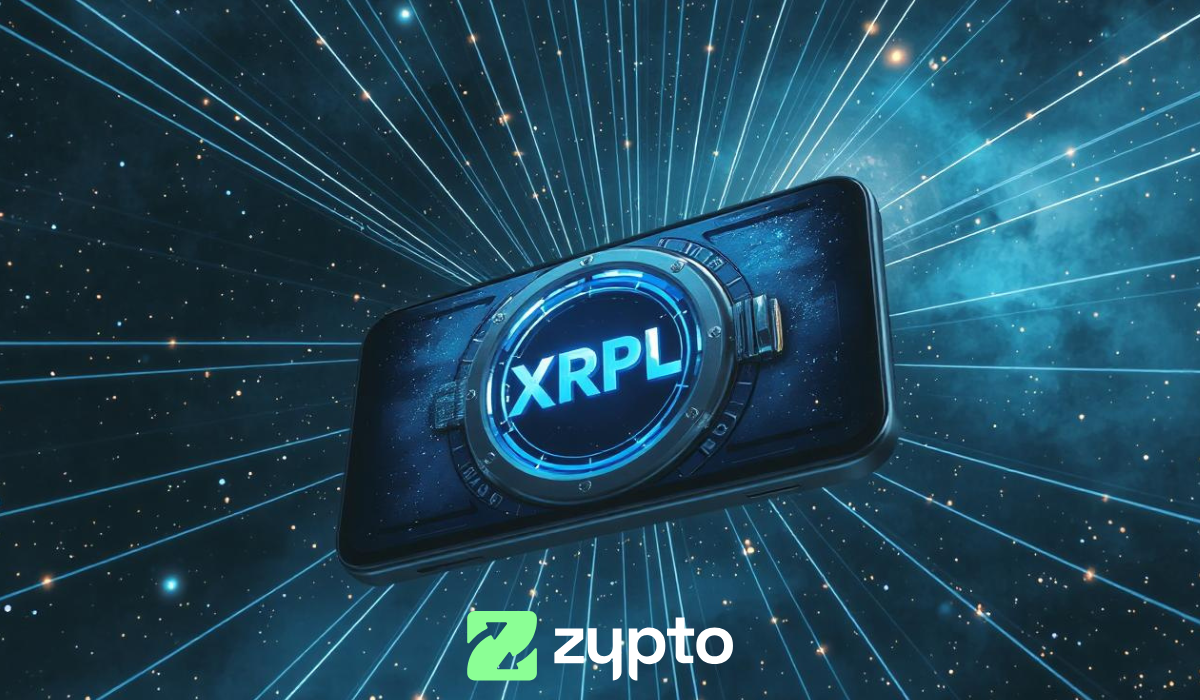
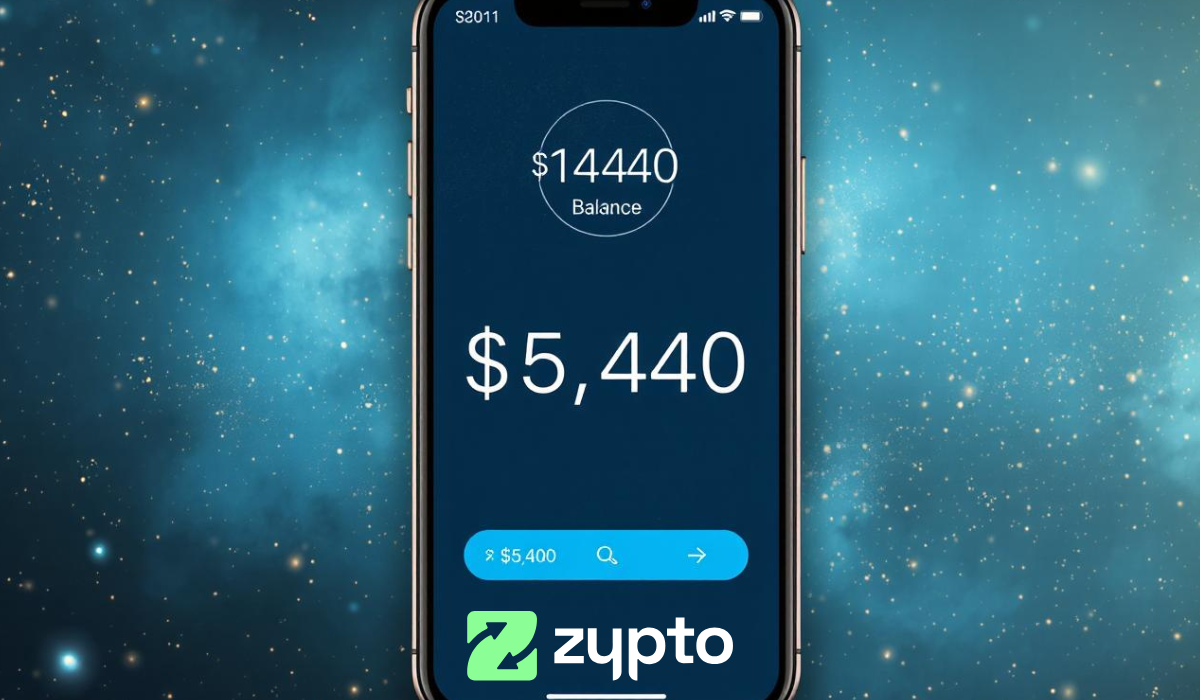



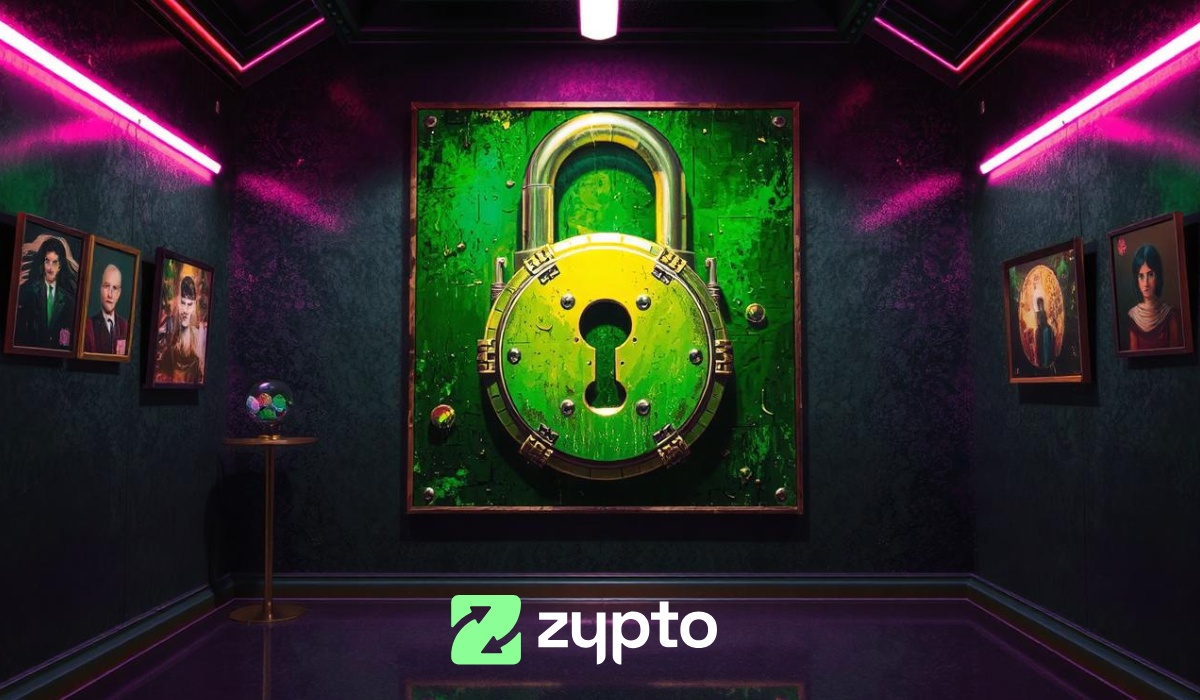

I’m a relative newcomer to the crypto space and this helped a lot with understanding some of the nuances. Can’t wait to read more and keep learning. Cryptocurrency is truly the future of finance with great companies like Zypto leading the way! Very well written.
I have been investing in crypto for 3 years and this is the clearest explanation that I’ve seen for the differences between crypto Coins and Tokens. Great post!
Zypto is clearly leading the way, not only in crypto payment solutions and DeFi / CeFi with Zypto App, but also in blog content. The information being published here on Zypto.com is hands down the best crypto education and information articles I’ve seen to date.
Superb article Kris. Thank you for this great info presented so clearly.
I’m not going to lie, it actually makes things clearer said like that.
A must read for anyone in the crypto industry or anyone planning to jump in the ship.
Great info as usual. Will be very helpful to Crypto beginners as the App releases and we start to see mainstream adoption.
Get ready for the Zypto Wallet launch—it’s not just an app; it’s a gateway to a cross chain decentralized future that is easy to use. Stay tuned 🚀
What strikes me the most is the circumstance, that Zypto (despite being an Ethereum Token) doesnt rely on a single token/coin/blockchain.
The Zypto Company and all the Token Holders and Product users can profit on all of them alike 🤩
The Volume counts – not the origin Coin, Token, Blockchain or its Utilization by physical or digital Credit Cards, Gift Cards, Swaps, Trades or Bill Payments.
By Zyptoapp and Zyptopay its possible to earn money in Bull or Bear market – cause Zypto is bringing Satoshis Dream of a mass-adopted Peer-to-Peer Payment Gateway to live, integrating all of Defi and bringing Utility to all Crypto Users ❤️
These blogs are great! A bit like “Cryptocurrency for Dummies” the difference between crypto coins and tokens was well explained. The crypto economy is only just getting started, with Zypto helping to bridge the gap between digital currency and FIAT, its bound to pave the way for crypto transactions to reach mass adoption.
Even the dreaded CBDC central bank cryptos use blockchain technology. Not sure if they will have cryptocurrency wallets though or what. ..
Can you elaborate more on the difference in fungible and non-fungible tokens, and the role that the latter plays in the crypto space?
Great reading material for people who just started in crypto. Anyway this is one of the basics every crypto investor, trader and new comer should understand and know. Perfect written! And btw Zypto is a Token, now you know WHY 😉
Both crypto coins and tokens have unique roles within the cryptocurrency ecosystem. Coins, with their own blockchains, provide a robust foundation for security and are ideal for transactions, often being less volatile. Tokens, on the other hand, offer diverse functionalities and utility, driving innovation and adoption within existing blockchain networks. Understanding the differences and uses of each can help investors and users make informed decisions and fully leverage the potential of the crypto space.
tldr;
In the realm of cryptocurrency, understanding the nuances between coins and tokens is crucial. Coins, such as Bitcoin and Ethereum, have their own blockchains, serving as native currencies and integral components of network security. Conversely, tokens are built on existing blockchains like Ethereum and offer a broader range of use cases beyond mere transactions. They’re utilized for ICO fundraising, governance, and more. Recognizing these distinctions empowers investors to make informed decisions and harness the full potential of the crypto landscape. Whether you’re drawn to the stability of coins or the versatility of tokens, both play pivotal roles in driving innovation and growth within the decentralized ecosystem.
Great article! Understanding the differences between crypto coins and tokens is crucial for anyone exploring the crypto world. Coins are native to their own blockchain, while tokens are created on top of existing blockchains. Coins serve as the base currency of a network and are used for transactions, while tokens have a wider range of use cases.
Coins, like BTC and ETH, operate on independent blockchains and provide the foundation for network security. They function as a medium of exchange and possess the attributes of traditional currencies. Tokens, on the other hand, are not native to the networks they exist on and can be used on multiple blockchains. They can represent various assets and are often created to raise capital for projects.
There are different types of tokens, including utility tokens, security tokens, governance tokens, and stablecoins. Utility tokens provide access to a project’s products or services, security tokens represent ownership in assets, governance tokens enable voting on protocol changes, and stablecoins maintain a stable value by being pegged to another currency.
It’s important to note that coins and tokens are both essential in the crypto ecosystem and serve different purposes. While coins are vital for network security and payments, tokens offer utility and flexibility. Ultimately, both coins and tokens have their place and can be beneficial for different investment strategies.